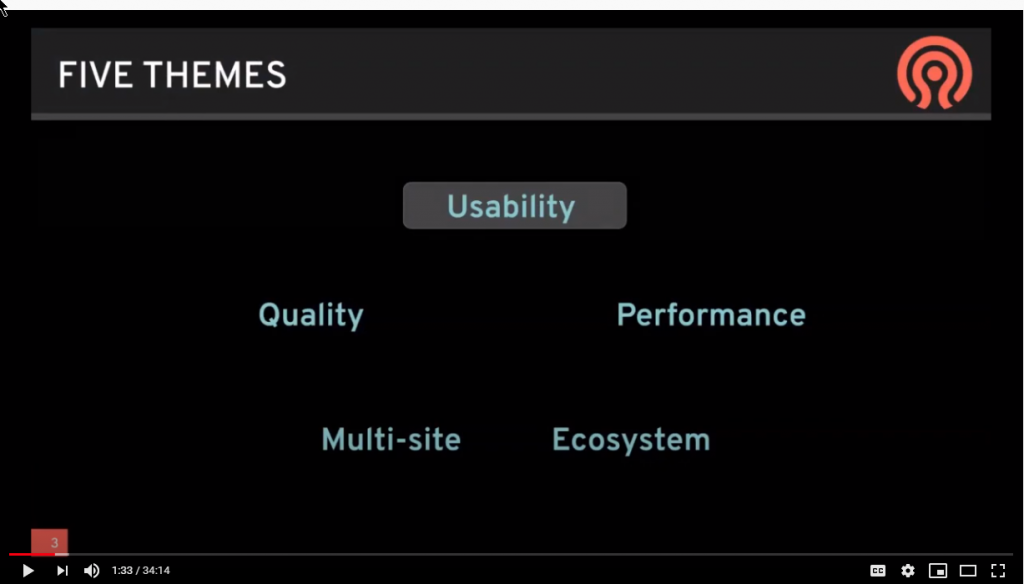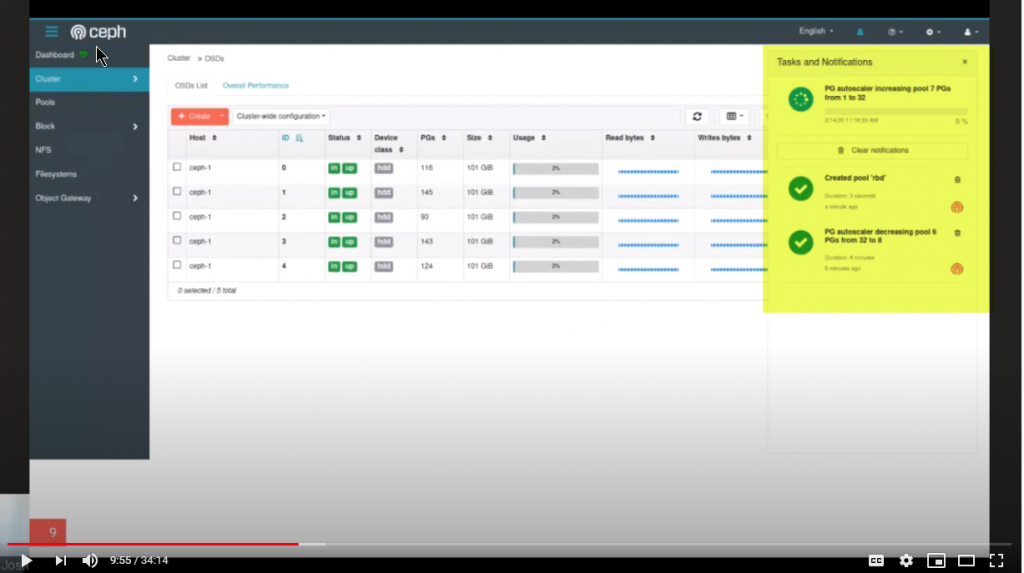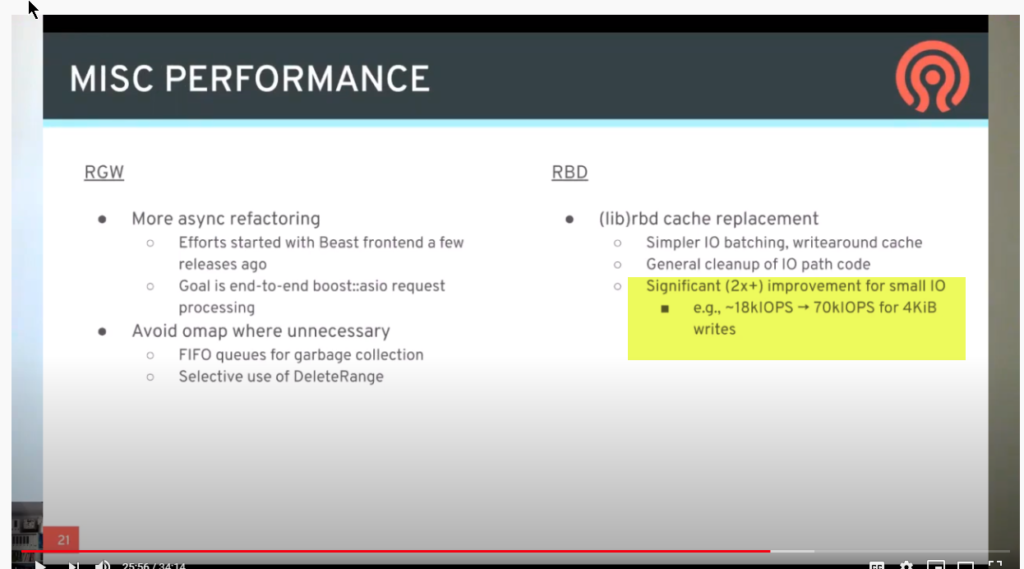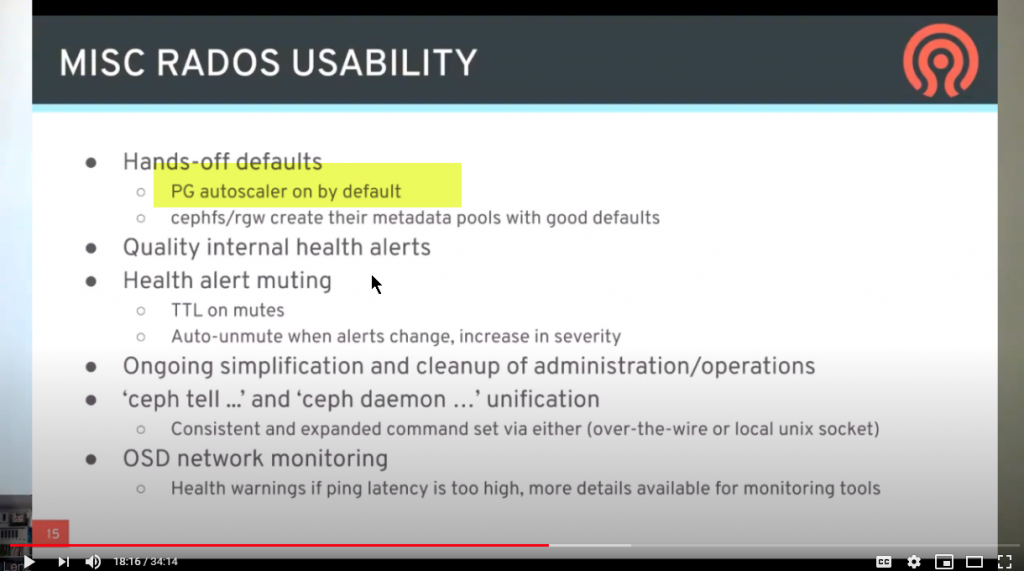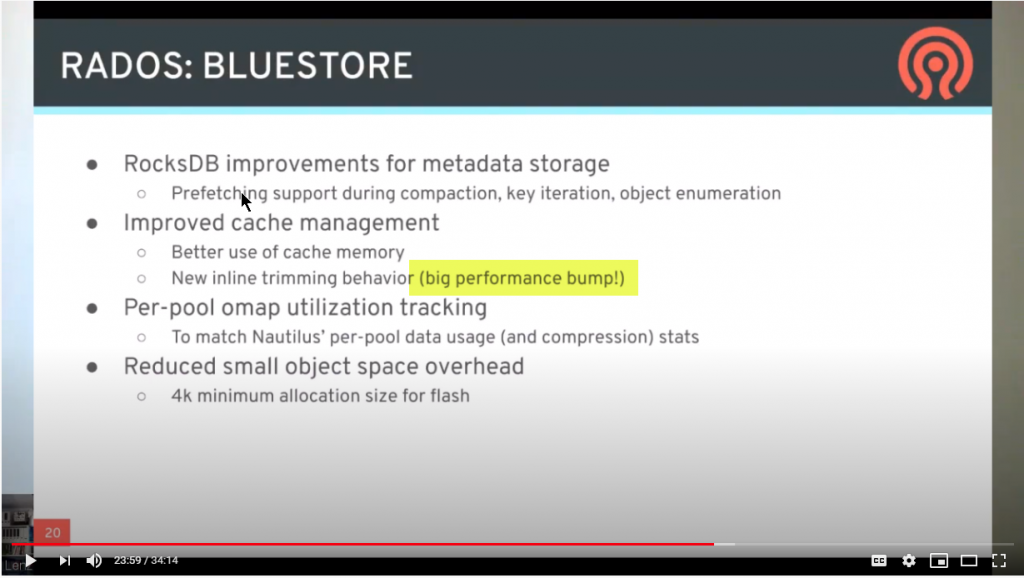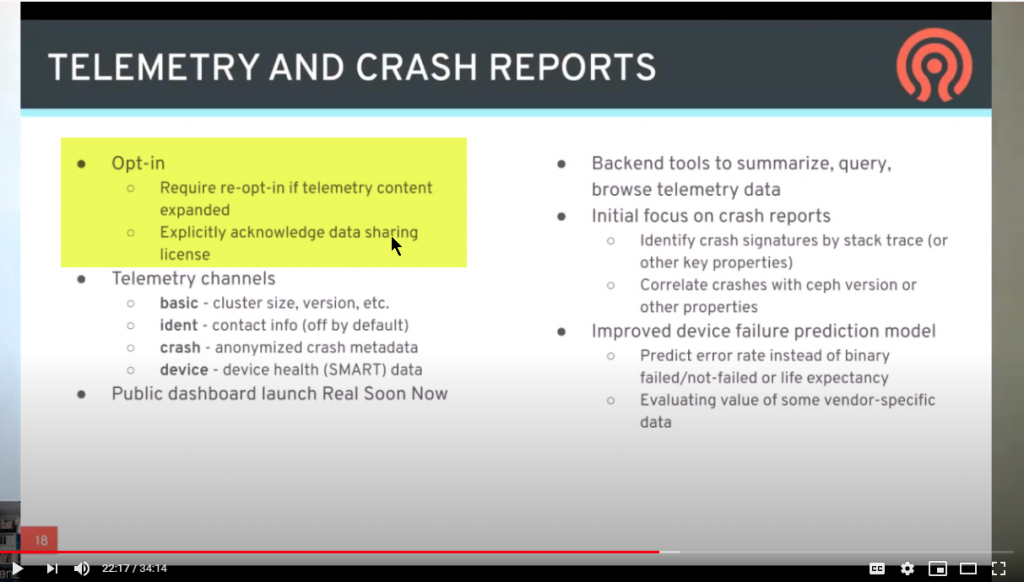We are running Ceph Nautilus for bigger/older installs, but are starting to run some new test clouds on Octopus. Specifically, we went down a bit of a rabbit hole for evaluating and understanding “on the fly compression” to help us determine what will be in our Feature Release Schedule for the 1.1 release of our private cloud product, OpenMetal Cloud. Currently, 1.0 is in its final stages and will be available in July, but we like to have a good set of options for the FRS before we start on the next release.
In the process of going down the compression rabbit hole, we also ran into the “Ceph Tech Talk video” – included below – on 2020-05-28 called “What’s New In Octopus”.
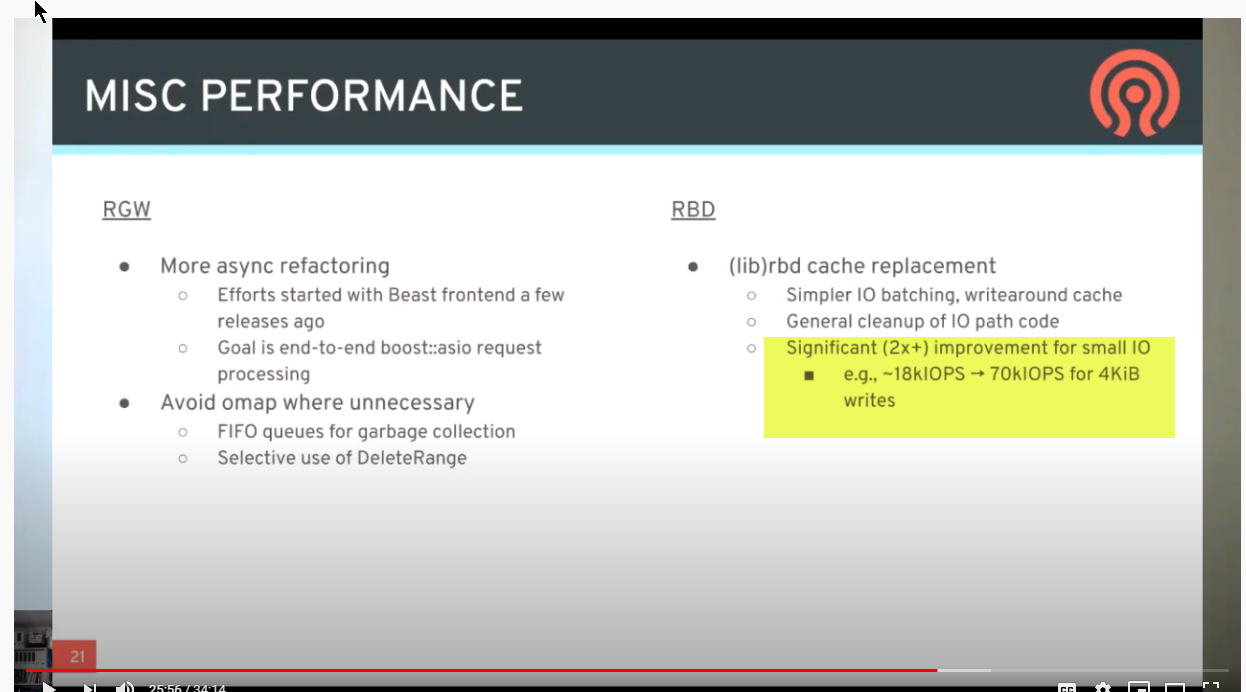
What’s New in Ceph Octopus
Further, we have a few tidbits from the video to highlight. The presenter in that video seemed a bit nervous, but stick with it, he has some great stuff to cover.
They focused on the 5 areas below – and each one of them gets some really important changes. I highlighted a few that stood out but there are probably several more that you will find important for your Ceph deployment.
If the video is a bit too hard to follow, there are a few other places to get the info, but this one is the most concise we could find.
You can also see the major changes from Nautilus to Octopus from the main Ceph documentation, though it doesn’t include some of the hints, like “2X+ improvement for small IO” like the video describes.
Ceph Tech Talks, What’s New in Octopus
Ready for Ceph Octopus?
All cases are different. You should try out Octopus in a test environment and be familiar with the changes it will make to determine how to take advantage of the new features.
What we can say is with Ceph consistently being one of our team’s favorite part of the overall private cloud stack, we also have generally come to trust the Ceph distributions as a first-class product. With that being said, several additional releases are out since the major and seeing the 12.2.2 release details – bug fixes and a security issue – we are confident in deploying Octopus.
Check out the upgrade manual on Ceph.io.
Last note – if you are into Open Source please consider our On-Demand OpenStack Private Cloud with CEPH object storage. Built on Open Source, no lock in, better costs, and private from the start.




































